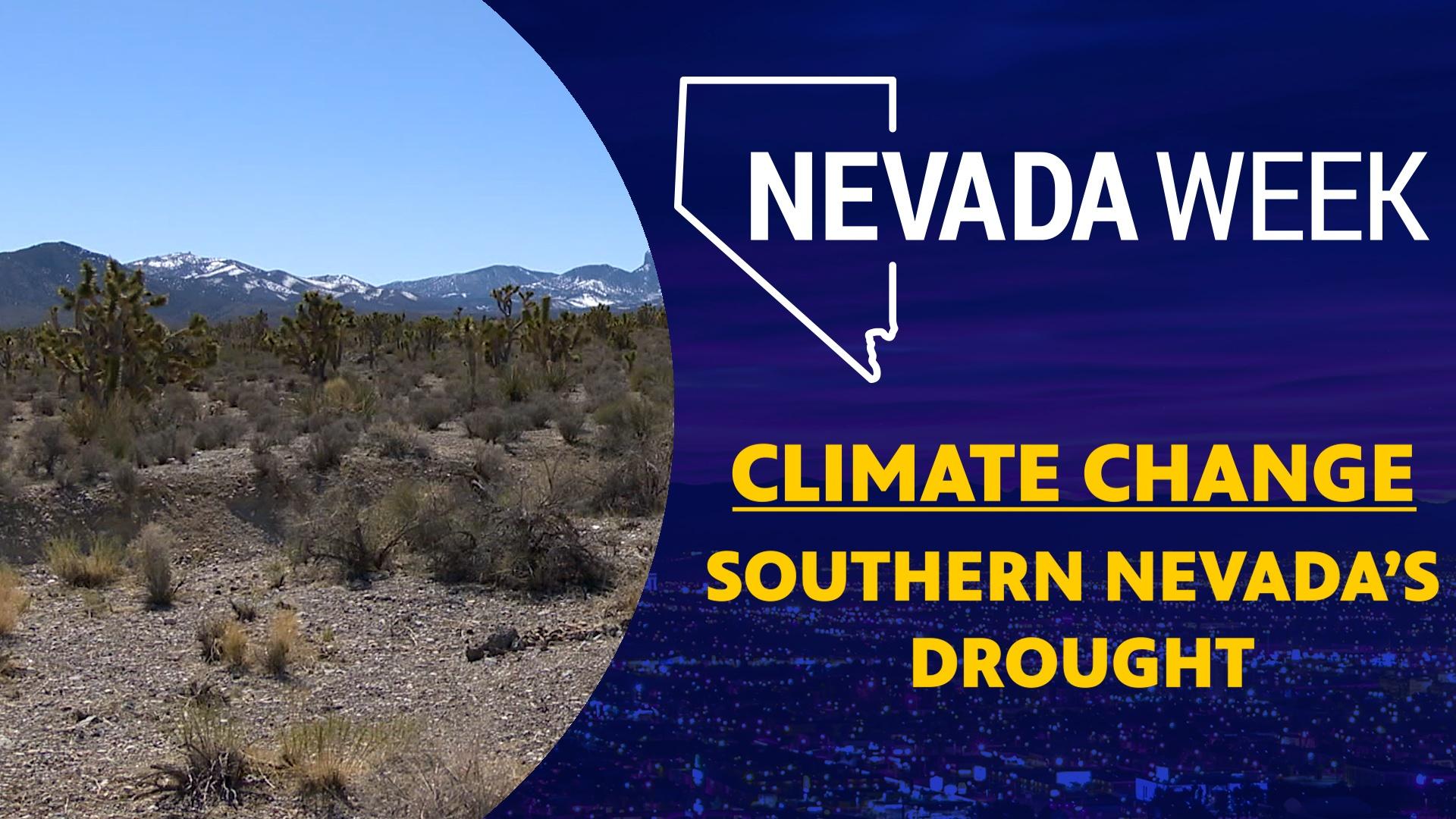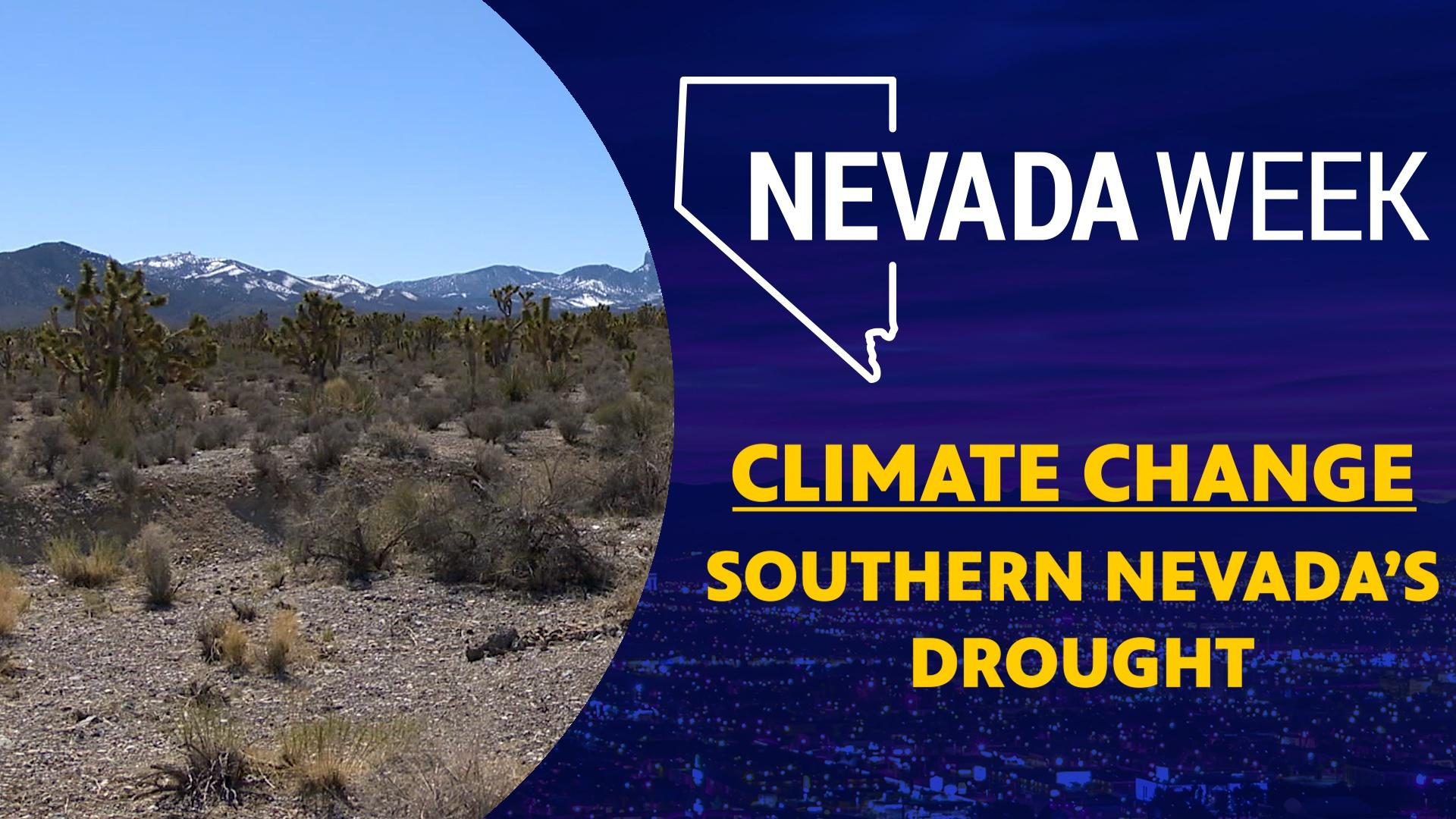Climate Change and Southern Nevada’s Drought | Nevada Week


We examine the impact of climate change and the lack of snowpack on Southern Nevada.

SEASON 4: EPISODE 36 | Airdate: 3/18/2022
Snow in the Rocky Mountains eventually feeds the all-important Colorado River with the water that more than 40 million people depend on.
But climate change is impacting that snowpack in several different ways.
In February, the United Nations Intergovernmental Panel on Climate Change released an alarming report that outline some of the dire consequences the world is already facing because of greenhouse gas emissions.
Kristen Averyt, the senior climate advisor to Gov. Steve Sisolak’s office, said climate change has been impacting the world in a number of ways for quite a while. She said in Southern Nevada the crisis is impacting us through our water resources and the extreme heat.
Averyt said there is no question that climate change is being caused by human activity and the burning of greenhouse gases. She said the IPCC’s report showed that measures to address climate change are not keeping up with the rate of changes.
One of the biggest problems is extreme heatwaves. Averyt noted that extreme heat accounts for more deaths than any other weather event fueled by climate change.
She said that some places like Nevada are already adapting to extreme heat but places like the Pacific Northwest, which saw a deadly heatwave in 2021, are not ready for the kind of temperatures extremes we’re going to continue to see.
Another thing Southern Nevada is doing right, according to Averyt, is handling our water resources.
“I think one thing about being here in Southern Nevada is we live in a desert,” she said, “We know we live in a desert and we act like we live in a desert. So, we’re doing a really good job I think thus far adapting and remaining resilient to the impacts of climate change because we see it and it’s happening to us now. And I’m fully confident that we’re going to be able to work together to continue to adapt and make sure that this is a livable and thriving place.”
Southern Nevada recycles the water that goes down a drain, but water that is used to keep grass green can’t be recycled. A new law passed in 2021 aims to deal with that by outlawing ornamental turf, which is essentially grass that isn’t being used by anyone, by 2027.
That could help save thousands of gallons of water each year.
Hotter and drier conditions around the western United State means less water in Lake Mead. How much water flows into the lake is determined by the snowpack that falls in the Rocky Mountains.
Paul Miller is the service coordination hydrologist for the Colorado River Basin Forecast Center. The center works to provide the most accurate water forecast for the water resource managers around the West.
He said currently the snowpack is at 70 to 75 percent of average. However, last year, the National Oceanic and Atmospheric Administration updated what it considers to be ‘average’ so it is now more in line with the hotter and drier conditions the West has been experiencing over the past 20 years.
Miller pointed out that the Colorado River doesn’t get 100 percent of the runoff from the snowpack. Because of drier soil conditions, more water is ending up in the soil and in the foliage rather than in the river.
He said Lake Mead and Lake Powell, the two largest reservoirs in the Colorado River Basin, have been able to get us through the long drought, which is now stretching past two decades.
Miller said the 70 percent of average that the snowpack is at right now would have been fine in the past.
“I would have considered it good if we hadn’t had a persistent drought,” he said, “The last couple of years has been historically dry. Last year, was the third driest on record.”
He said the string of successively dry years is straining the water system in the West.
The lack of snow is starting to hurt some ski resorts, especially in the eastern side of the country.
Here in Southern Nevada, Lee Canyon Ski Resort has been making snow for years. It uses the water from the Spring Mountains to fuel the snow cannons that coat the mountain with snow.
The resort will be opening a new mountain biking trail. The trail ran into some snags because it was going to be close to the home of the very rare Mt. Charleston blue butterfly. The resort worked with conservationists to create a plan to allow the trail to move forward but in a way that would interfere with the butterflies' habitat.
